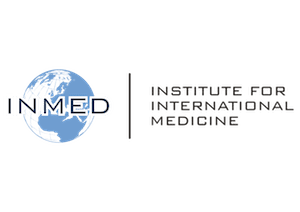Course Information
Rapidly increasing international trade and travel predictably increases the likelihood of rapid transmission of infectious diseases. The devastation caused by the 1918 Spanish influenza epidemic and the worldwide alarm prompted by the 2004 SARS epidemic provide important insights into today’s concerns surrounding COVID-19. This course emphasizes objective investigation to identify evidence-based answers to critical questions, including identifying the infectious agent, the mode of transmission, incubation period, and effective modalities for prevention, diagnosis, and treatment. This course also highlights how communicable disease control often requires deliberate intervention to address special ethical challenges: disease-associated racism, resistance to local and international cooperation, and extreme stress placed upon low-resource health systems. This is a comprehensive course is built around the required textbook The End of Epidemics, by Jonathan D. Quick (Scribe Publications, 2018).
At the completion of the Communicable Disease Control Course, learners will be able to demonstrate using case-studies and simulation:
- Long-range mitigation of risk factors associated with epidemics
- Effective measures to investigate the causes of epidemics
- Reliable communicable disease control interventions
Building upon the lessons below, learners will also critique assigned articles, participate in discussion boards, compose a comprehensive essay on the subject “How shall my nation better prepare against communicable diseases threats?” and participate in a comprehensive emergency communicable disease control simulation.
WEEK 1: THE POWER OF SEVEN AND LESSONS FROM THE BUSH
- Lessons learned from Spanish flu, AIDS, Ebola, SARS, and Zika
- Dangers posed by fear, denial, complacency, and self-interest
WEEK 2: LESSONS FROM THE BARN AND THE TRIPLE THREAT
- Threats posed by the global animal food industry
- Perennial influenza and mad cow: the first man-made epidemic
- Bioterrorism, bio-error, and unethical science
WEEK 3: THE COSTS OF COMPLACENCY AND LEAD LIKE THE HOUSE IS ON FIRE
- Ricochet effect: scattered risks and amplified costs
- Aversion behavior and epidemic cascade
- The hit to education
- DA Henderson and the end of smallpox
- Pivotal leadership against AIDS, SARS, and Ebola
- Nigeria’s response to Ebola
WEEK 4: RESILIENT SYSTEMS AND GLOBAL SECURITY AND ACTIVE PREVENTION AND CONSTANT READINESS
- Ethiopia’s fight against aids
- Governmental, NGO, and faith-based health leadership
- Preventing mosquito-borne diseases
- Vaccines: our most powerful protection
- Early detection, rapid response, and protecting primary healthcare
WEEK 5: FATAL FICTIONS AND TIMELY TRUTHS AND DISRUPTIVE INNOVATION AND COLLABORATIVE TRANSFORMATION
- The psychology of fear and distrust
- The leadership-during-crisis tight rope
- How mainstream media can help
- Analysis and response to vaccine skepticism
- The proud history of innovation
- Vaccines, mosquito control, rapid tests, early warning systems
WEEK 6: INVEST WISELY AND SAVE LIVES AND RING THE ALARM AND ROUSE THE LEADERS
- Collaboration for critical innovations
- How “recency bias” trips us up
- The political case for action
- The business case for investments
- Fighting ignorance at the top
- AIDS denialism and the battle for HIV treatment
- From local campaigns to a global movement to end epidemics
WEEK 7: FINAL PRESENTATION
- Final essay submission and class presentation
WEEK 8: FINAL EXAM
- Final Exam
The following are the minimum computing requirements for participating in this course. Students must have ready access to and be functionally proficient with:
- A personal computer with an up-to-date operating system and ample memory for downloads
- A web browser, preferably the most up-to-date version of Chrome, Internet Explorer, Firefox, or Safari
- Applications capable of opening Microsoft Word documents and of viewing PDFs
- An Internet connection, preferably high speed
- Capability of viewing YouTube and Vimeo videos
Education Methods
Learners will achieve the course competency objectives through the following educational methods:
- Assigned book and article readings
- Critical analysis
- Group discussions
- Essay Composition
- Simulation exercises
Evaluation Methods & Requirements For Successful Completion
Assessment of the learner’s performance will be based upon:
- Demonstration of the competency objectives using case-studies and simulation
- Completion of all Chapter Discussion Board assignments
- Completion of all Article Discussion Board assignments
- Achievement of ≥ 80% on the Emergency Pandemic Control Essay
- Achievement of ≥ 80% on the Emergency Pandemic Control Exam
- Complete evaluation and credit claims forms at the course conclusion
Continuing Medical Education (CME) credit for the INMED Communicable Disease Control Course is attained through satisfactory completion of the course requirements. Note: CME is not applicable to students or resident physicians.
Cost
There is no additional charge for Continuing Medical Education (CME) credit.
Accreditation Statement
Physicians
Institute for International Medicine is accredited by the Kentucky Medical Association to provide continuing medical education for physicians.
The Institute for International Medicine designates this other activity (live course and enduring material) for a maximum of 32 AMA PRA Category 1 Credit(s)™. Physicians should claim only the credit commensurate with the extent of their participation in the activity.
Accreditation Launch Date: February 1, 2024
Accreditation Termination Date: February 1, 2027
Other Healthcare Professionals
A certificate of completion indicating the number of AMA PRA Category 1 Credit(s)™ will be issued for completing this course. Certificates may be submitted to applicable state boards for recognition.
Disclosures
No persons in control of the content of this course have relevant financial relationships with ineligible companies.
| Nicholas Comninellis MD MPH DIMPH | No relevant financial relationships with ineligible companies to disclose |
| Joseph LeMaster MD MPH | No relevant financial relationships with ineligible companies to disclose>/td> |
| Fred Loper MD | No relevant financial relationships with ineligible companies to disclose |
| Timothy Myrick MD DTMH | No relevant financial relationships with ineligible companies to disclose |
| Leda Rivera | No relevant financial relationships with ineligible companies to disclose |
Tuition for the Communicable Diseases Control Course is $885 for both Master’s degree and non-Master’s degree credit. No additional charge is added for Continuing Medical Education (CME) credit.
The cost of this course offered outside of the United States, including China, may be different to account for local taxes and local regulation compliance.
For more information, please view our Cost page.
Nicholas Comninellis MD, MPH, DIMPH
Joe LeMaster MD, MPH



